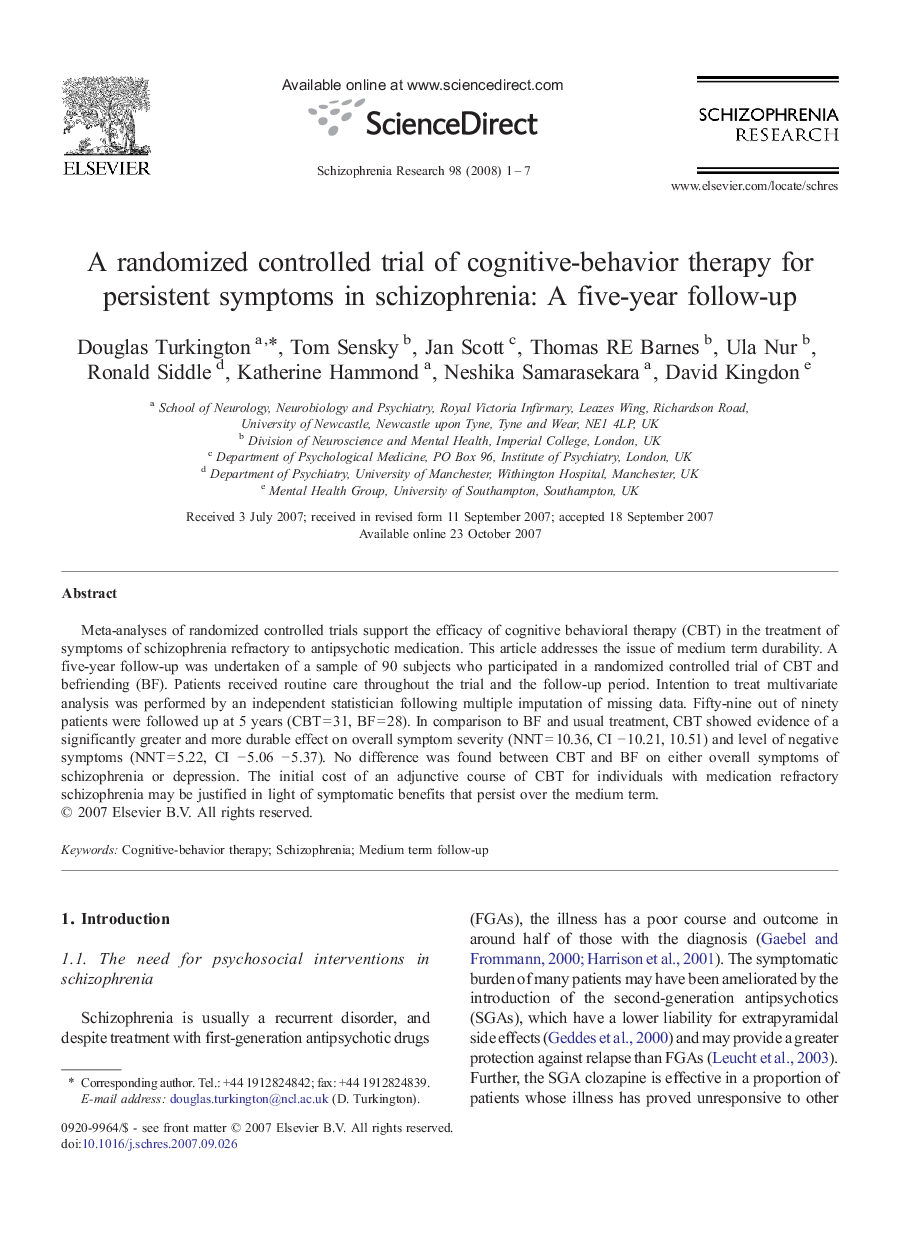| Article ID | Journal | Published Year | Pages | File Type |
|---|---|---|---|---|
| 340017 | Schizophrenia Research | 2008 | 7 Pages |
Meta-analyses of randomized controlled trials support the efficacy of cognitive behavioral therapy (CBT) in the treatment of symptoms of schizophrenia refractory to antipsychotic medication. This article addresses the issue of medium term durability. A five-year follow-up was undertaken of a sample of 90 subjects who participated in a randomized controlled trial of CBT and befriending (BF). Patients received routine care throughout the trial and the follow-up period. Intention to treat multivariate analysis was performed by an independent statistician following multiple imputation of missing data. Fifty-nine out of ninety patients were followed up at 5 years (CBT = 31, BF = 28). In comparison to BF and usual treatment, CBT showed evidence of a significantly greater and more durable effect on overall symptom severity (NNT = 10.36, CI − 10.21, 10.51) and level of negative symptoms (NNT = 5.22, CI − 5.06 − 5.37). No difference was found between CBT and BF on either overall symptoms of schizophrenia or depression. The initial cost of an adjunctive course of CBT for individuals with medication refractory schizophrenia may be justified in light of symptomatic benefits that persist over the medium term.
